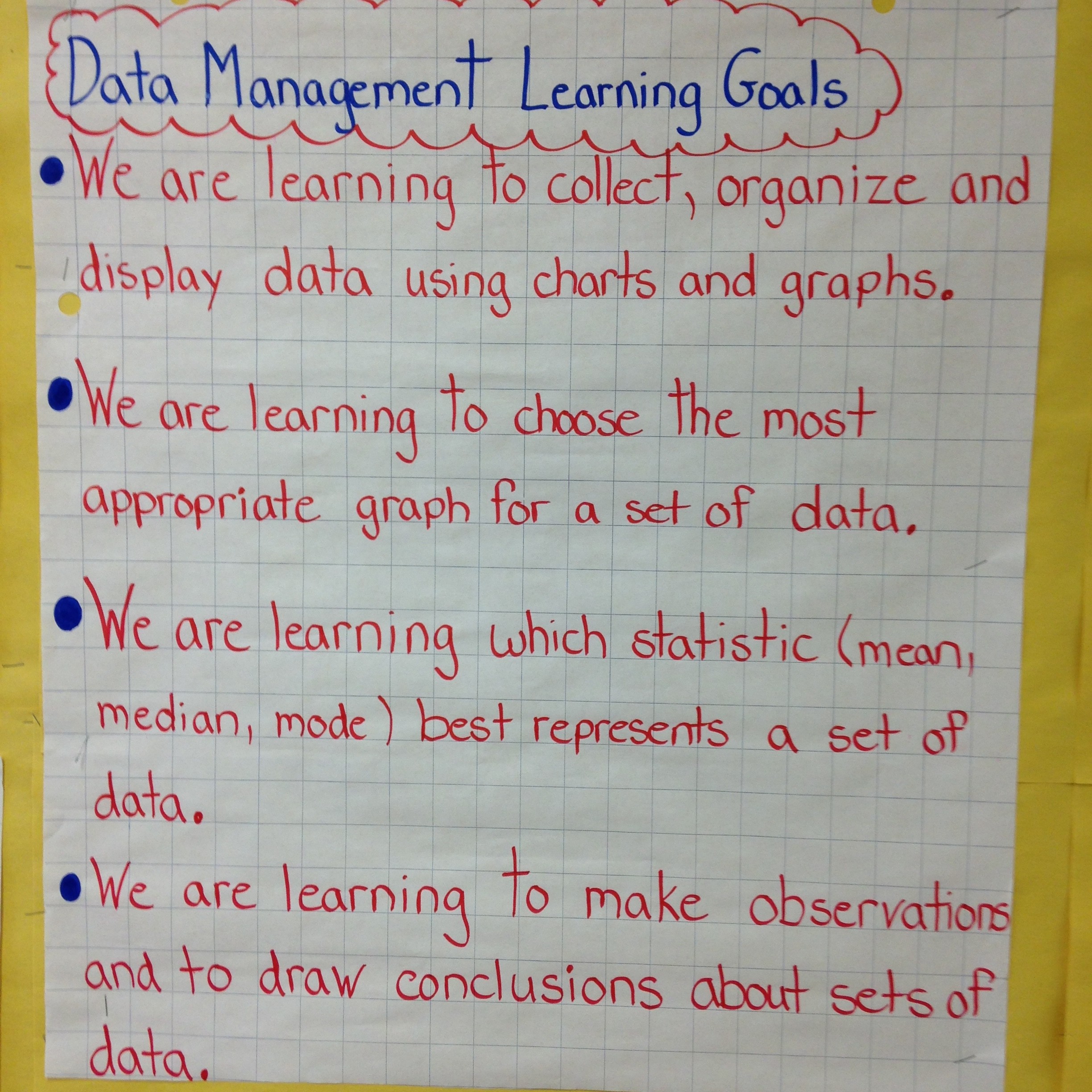“The purpose of assessment is not to rate, rank and sort students, but to provide meaningful feedback that leads to high performance for all students.” (Mariano & Heflebower)
It is imperative that educators understand the power of the relationship between big ideas, learning goals and feedback. To impact student thinking learning goals need to focus on a math big idea and the feedback needs to be focused on this key math concept.
My understanding of the relationship between learning goals that are aligned with big ideas was deepened as a result of our inquiry work. Two boys I observed were able to find the mean, median and mode of a data set without any trouble. In fact, they were able to demonstrate an understanding of how two outliers 18 and 22 impacted the mean and were therefore able to explain why the median was a better single number descriptor of the data set. If our learning goal had been “students will be able to find the mean, median and mode for a data set” then a number of students would have met the learning goal and we would have felt that our work was done. Many students would not have really understood the how or why behind the representation of data.
I say this because awhile ago I was in a classroom and the students were working on questions about “mean” out of the text book. I stopped and asked one student what the purpose of finding the mean was and she said to me, ” I don’t know the purpose, but I do know how to do it.” I looked more closely at the questions in the text and realized that a student could complete this page correctly without any understanding of the big ideas related to data management. This speaks to the importance of triangulation of data – say, write and do as well as the understanding of the big ideas. When our expectation of a student stops at them correctly calculating the mean, median and or mode what feedback can we give them that moves their thinking forward? When we want them to understand that a data set can be described by a single numerical descriptor and that this descriptor depends on the real-world context, the numbers used, and / or the purpose of presenting the data then our feedback can impact student understanding at a deeper level.
I have learned that this focus on feedback not only impacts student learning, but also educator learning. It makes us slow down and take the time to write learning goals that focus on understanding and less about doing. Sometimes we have to step back and think about the following. What is it students really need to know and understand about this key concept? What do I need to know and understand in order to teach this for understanding? If we truly want our feedback to impact student thinking then our own understanding of the relationship between big ideas, learning goals and feedback must continue to be an area of focus!

